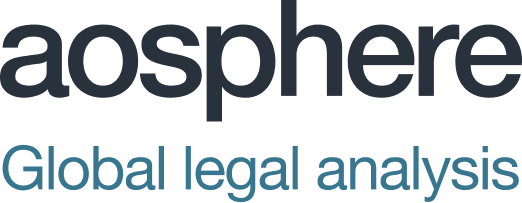On 12 November 2025, IOSCO issued its final report on neo-brokers (the Report). The Report forms part of IOSCO’s broader initiative on retail investor protection and is the result of a dedicated workstream focused on broker-dealers’ conflicts of interest. See also IOSCO's press release.
IOSCO defines “neo-brokers” as brokers that provide services through a business model characterised by their engaging client interfaces and/or leverage of social media, providing online-only investment services (generally limited to execution services), and, typically, doing so with limited or no human interaction. This definition generally aligns with the characteristics previously identified by ESMA (see ESMA’s Paper on Neo-Brokers in the EU).
The Report sets out IOSCO’s understanding of the business model developed by neo-brokers and identifies the potential risks that may arise from their activities. To address these risks, the Report proposes a set of recommendations as guidance for securities regulators, aimed at fostering a more transparent and accountable environment in which neo-brokers operate in compliance with securities regulations, including investor protection measures.
Neo-brokers’ business model
According to the Report, a neo-broker’s business model typically involves the neo-broker:
- charging low to zero trading commissions and instead relying on alternative revenue streams, such as “payment for order flow” (PFOF) (whereby neo-brokers route investors’ orders to third-party market makers or an exchange market in return for compensation) and/or offering ancillary or bundled services
- primarily targeting retail investors and positioning themselves as a low-cost alternative to other brokers
- offering a reduced range of services (for example by offering only one or a limited number of trading venues for executing orders and avoiding offering investment advice as part of their offering)
- offering services that do not require direct human interaction
- using social media and finfluencers for marketing their services
Potential risks from the activities of neo-brokers
The Report highlights that neo-brokers’ low or zero commission structure may encourage practices that may create conflicts of interest and be detrimental to retail investors.
These practices include:
- more frequent trading potentially against the investor’s best interests, as investors who trade more frequently may be less likely to outperform investors who trade less frequently (e.g. due to bid–ask spread costs)
- promoting ancillary services (such as margin loans or FX services) without fully disclosing the costs and risks borne by the retail investor in a bundled service offering
- routing orders to markets offering the highest rebates or incentives, rather than those providing the best execution prices for investors (such as in the case of PFOF practices)
- engaging in trading activities that generate other sources of revenue for the broker, such as trading fractional shares
Other potential risks stemming from the neo-brokers’ business model include a lack of transparency (for both investors and regulators) and operational risks associated with the use of digital platforms.
IOSCO recommendations
The Report urges IOSCO Members to consider the following recommendations as guidance regarding neo-brokers. Neo-brokers should be required to:
- act honestly, fairly and professionally with retail investors
- provide retail investors with clear, fair and simple disclosure of all material charges, including direct and indirect costs and fees. If neo-brokers claim “zero trading commissions” or similar, they should clarify any indirect costs borne by investors and avoid describing services as “no cost” where other paid services are involved
- disclose material revenue sources from ancillary services (including where bundled with core trade execution services) and related conflicts of interests. —Retail investor consent should also be obtained before providing such services
- assess the impact of PFOF on best execution (considering factors such as price, order size, type of security and order, trading characteristics, price improvement, speed and probability of execution), regularly review PFOF arrangements, compare execution quality with competing markets, and maintain records of order routing and PFOF receipts
- ensure they have robust IT infrastructure systems in place to promptly address disruptions that may prevent investors from using their platform effectively
IOSCO Members may also consider applying these recommendations to other broker-dealers that do not fall within the definition of neo-brokers (as provided by the Report), if they deem it appropriate due to the business model adopted by those broker-dealers.
How aosphere can help
Confidently distribute financial products and services worldwide with Rulefinder Marketing Restrictions.







